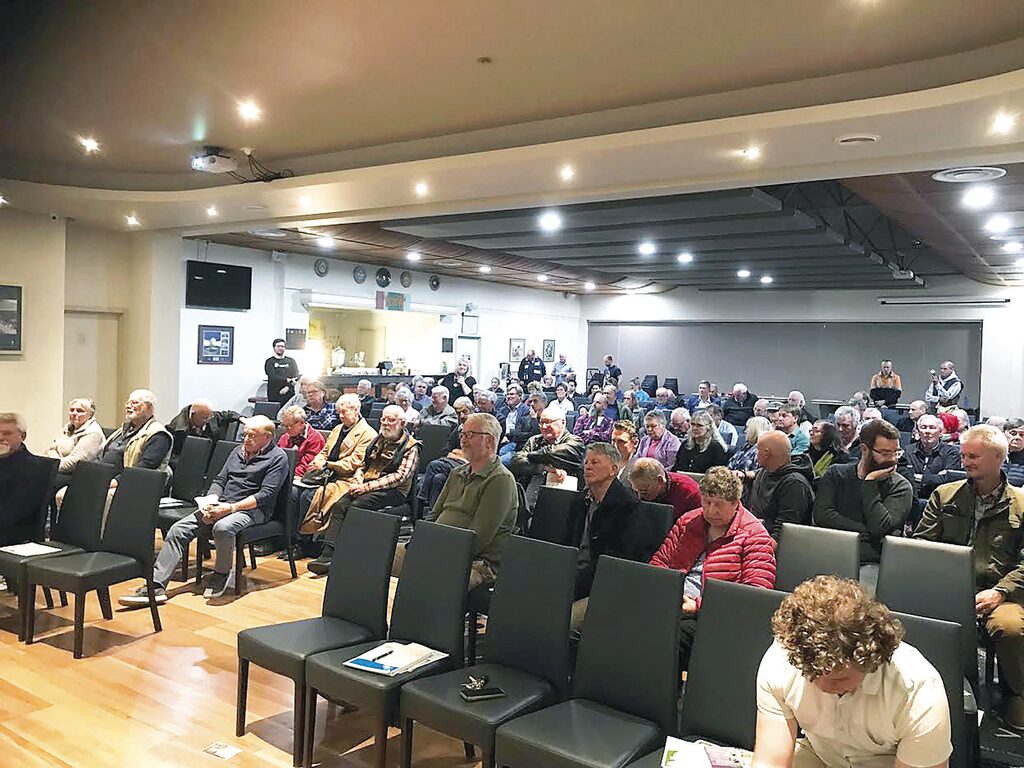By PHILIP HOPKINS
LATROBE City Councillor Graeme Middlemiss, introducing last week’s meeting in Morwell on nuclear energy for the Latrobe Valley, had a clear message: ‘I’m not here to support nuclear power, I’m here to listen’.
Cr Middlemiss said the Gippsland Trades and Labour Council had told him that the unions did not support nuclear energy for the Latrobe Valley. Neither did the Labor Party, of which he is a long-standing member.
“I’m born and bred in the Valley; I love the Valley, but am very disappointed at how the Valley is going backwards, and how that will accelerate,” he said.
“The reality is, we accept Australia will decarbonise, will reduce greenhouse gas emissions, and is now demanding biodiversity. We have no chance of opposing that; we will lose coal mines and power stations and have lost half the paper industry. Enormous amounts of jobs will go in the future. The Latrobe Valley and the Hunter are bearing a disproportionate load of this decarbonisation,” he said.
“Does anybody care? We haven’t seen anything by either major party of job replacement here. The job loss has been horrendous and will accelerate.
“We need to listen to every opportunity that is offered to us. I’m not saying we have to take that opportunity, but we need to listen. We can make up our mind whether it’s good for us or not. Talking about these thing has to be good for our community.
“I’m sick and tired about loud voices from Melbourne screaming, ‘No coal, no nukes, no battery factory’ and those voices are being echoed by people here in the Valley.”
Cr Middlemiss said he was sick to death of “press release job opportunities”. Past promises all had failed: a barramundi business for 180 jobs and the 500 jobs for electric vehicles. The latest was offshore wind to produce green hydrogen here, but the richest man in Australia had now decided “it’s about 40 years away”, so offshore wind was not an opportunity.
“We do have opportunities, but green forces have bullied government. The Japanese have offered to spend $2.3 billion in the Valley to make hydrogen from brown coal. That involves geo-sequestration of emissions – no emissions into the atmosphere – all into empty oil fields of Bass Strait. All the research is being done by CarbonNet,” he said.
Cr Middlemiss said another company wanted to make 600 tonnes a year of urea, a fertiliser, from brown coal.
“The CSIRO have checked their process – it is zero emissions, yet they cannot get permission to use brown coal. The Japanese are looking at hundreds of jobs and have a mine keeping them going. We can’t get those off the ground because everybody is scared of the word ‘coal’. We’ve accepted open cycle power stations, they’ll close; there are alternative use of brown coal, but doesn’t look as if they will get off the ground,” he said.
In the next decade to 2035, the Valley would have lost all the high-value jobs, which would lead to job losses in the retail and service trade. With an ageing population, possible jobs were in “God’s waiting room – nursing homes”. Nuclear? “There is an overwhelming demand for jobs here and there is nothing on the horizon,” he said.
Cr Middlemiss said Latrobe’s population, previously similar to Ballarat and Bendigo, had progressively shrunk since 1991.
By 2051, Ballarat was expected to grow by 39,000 to 118,000, Bendigo by 42,000 to 124,000, while the Valley would grow by just 2990 to 78,000. Similarly with state government housing projections to 2051 – Ballarat by 46,900, Bendigo by 37,500, even Warragul/Drouin by 24,700 and the Valley at only 12,300.
“We should listen to every proposal that comes our way. Give these people a fair hearing and then make up our minds as a community,” he said.
“I’m sick to death of other people making up their minds for us. We need to make up our minds. Have a listen to the nuclear guys. I’m not advocating, but have a listen, have an open mind about proposals for our future.”












